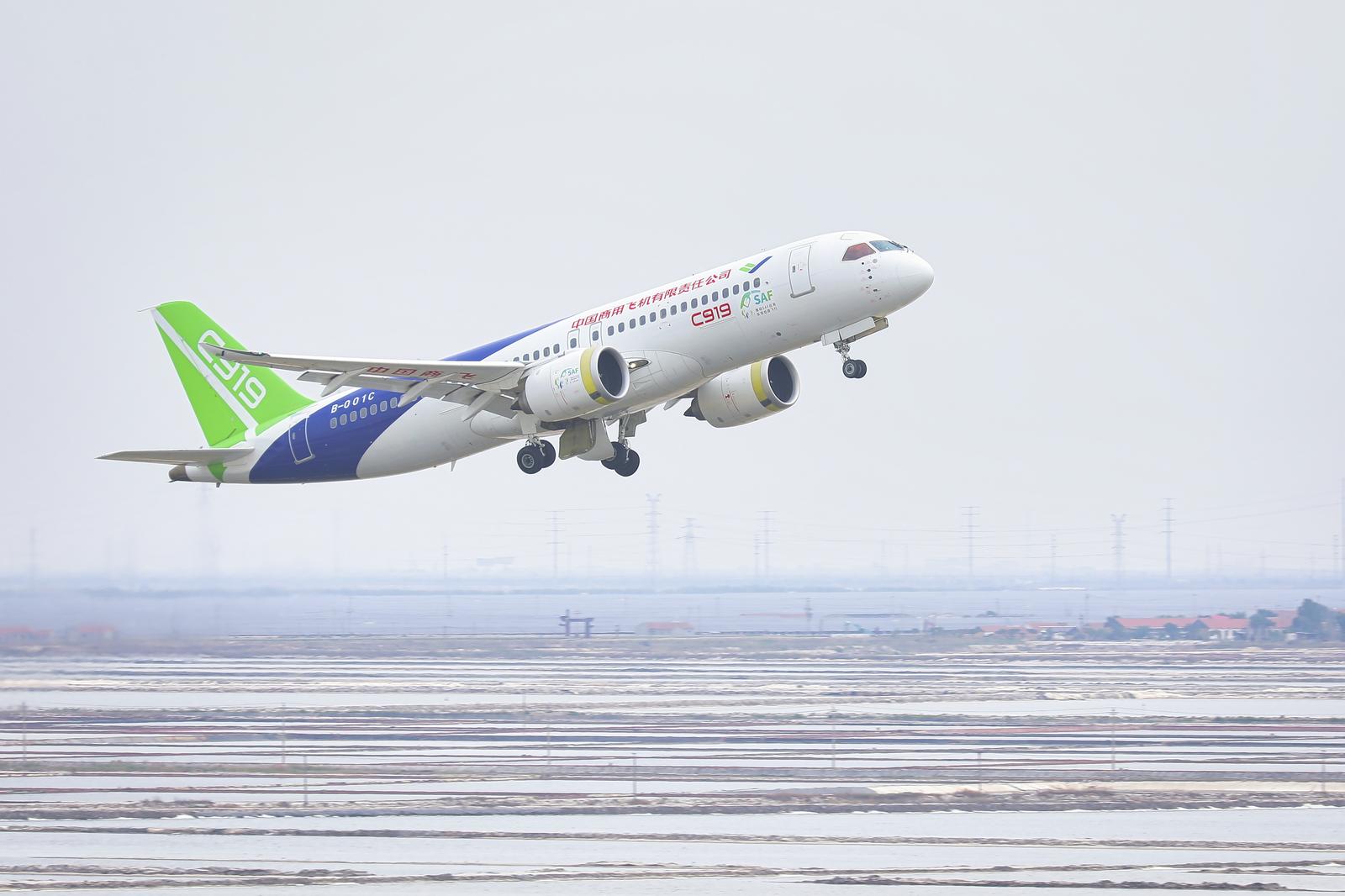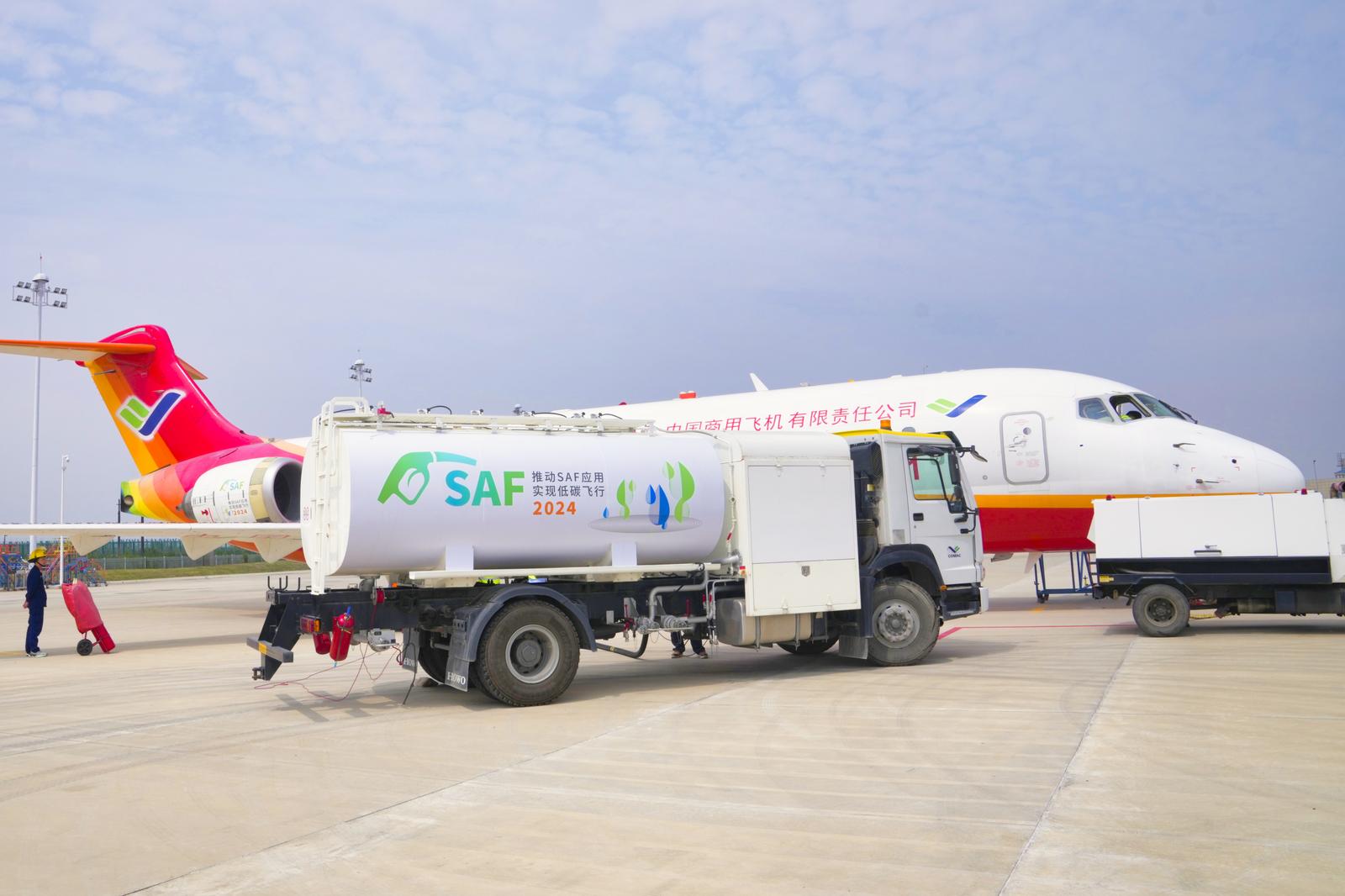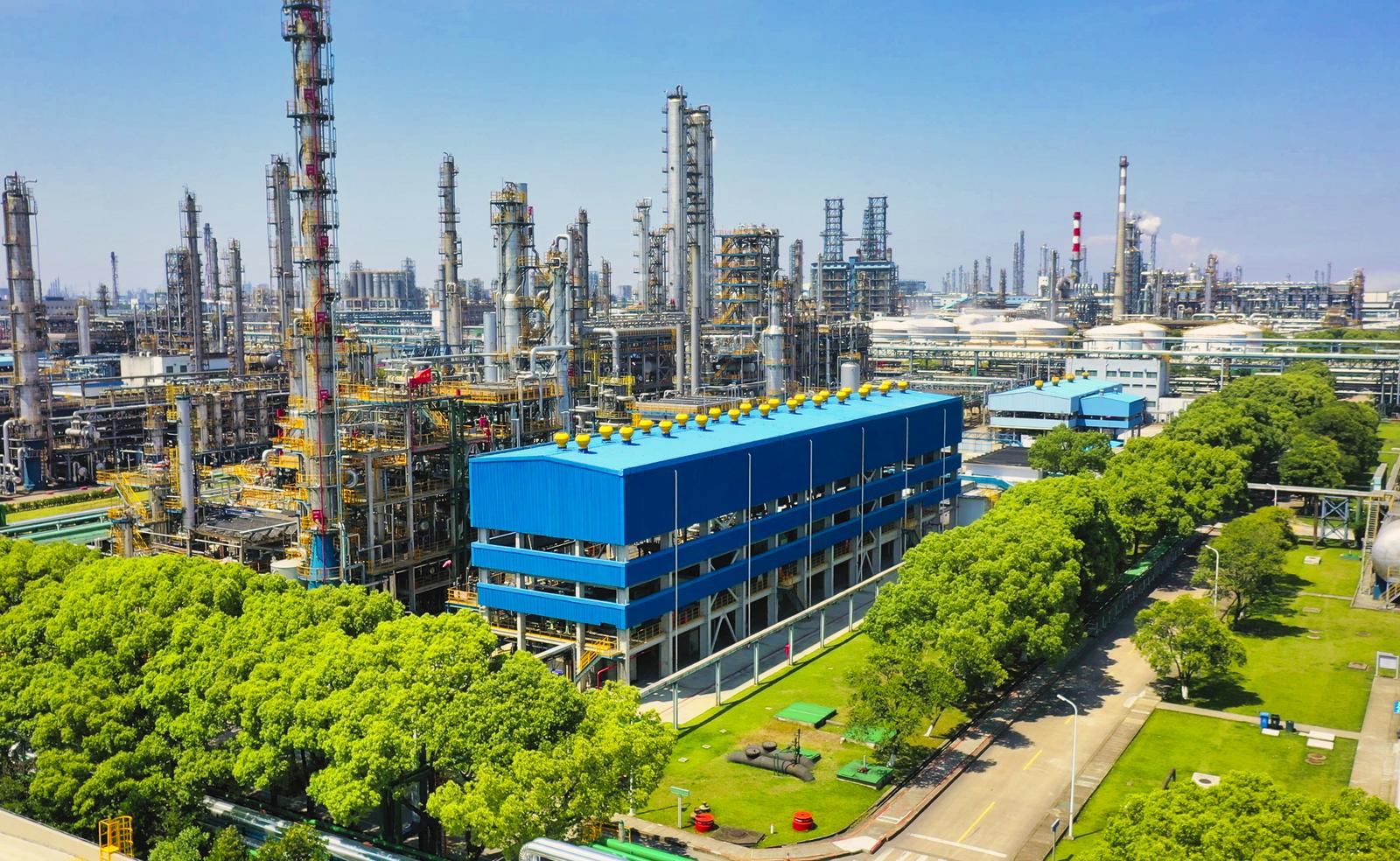
On June 5th, a significant milestone was achieved by the Commercial Aircraft Corporation of China (COMAC) when an ARJ21 regional jet and a C919 large passenger jet each completed a special demonstration flight. What made these flights unique was the type of aviation fuel used, which differed from the usual.
The two aircraft took off separately from Shanghai Pudong Airport and Shandong Dongying Airport. After flying for over an hour, both successfully completed their first flights powered by sustainable aviation fuel (SAF), showcasing their excellent performance with this new fuel.

The SAF used in these demonstration flights was produced using technology developed by Sinopec. The raw material is waste cooking oil, commonly referred to as "gutter oil." This waste oil, collected from restaurants, is processed at Sinopec's Zhenhai refinery, the first industrial facility in China dedicated to producing bio-jet fuel, thus making possible green resource utilization.
The civil aviation industry is a key focus for energy-saving and carbon reduction efforts. More than 95% of aviation carbon emissions come from the burning of fossil fuels. SAF is a liquid aviation alternative fuel made from renewable materials such as waste oils, household waste, energy crops, and synthetic fuels produced from carbon dioxide captured from air or industrial emissions.

Compared to flights using traditional aviation fuel, those using SAF can have their carbon emissions reduced by up to 80% over their lifecycle. This makes SAF a crucial component in the aviation industry's strategy to combat global warming and reduce its carbon footprint. Currently, major international aircraft manufacturers, global airlines, and technology companies are deeply involved in researching the practical applications of SAF. In China, over a dozen companies and research institutions are developing and producing SAF, and several airlines have already conducted commercial test flights using domestically produced SAF.
The International Air Transport Association (IATA) predicts that by 2025, the global use of SAF will reach seven million tons, and by 2030, it will increase to 20 million tons. Considering China's annual consumption of over 30 million tons of jet fuel, if all jet fuel were replaced with bio-jet fuel, it could reduce carbon dioxide emissions by approximately 55 million tons annually, which is equivalent to planting nearly 500 million trees.
Source: Yangcheng Evening News
助力碳减排!国产商用飞机首次成功用“地沟油”上天
6月5日,中国商飞公司一架ARJ21支线飞机和一架C919大型客机各自完成了一场特别的演示飞行任务。其特别之处体现在哪?答案就是两架飞机本次使用的航空燃料跟以往有点不同。
据悉,两架飞机分别从上海浦东机场和山东东营机场起飞,经过1个多小时的飞行,圆满完成首次加注可持续航空燃料(SAF)演示飞行任务,展现了加注SAF后两型国产商用飞机的良好飞行性能。
据介绍,两型国产商用飞机演示飞行所使用的SAF采用中国石化自主研发生物航煤生产技术,原料来自俗称“地沟油”的餐余废油。餐余废油经回收处理后在中国石化镇海炼化建成的国内第一套生物航煤工业装置进行加工,产出生物航煤,实现绿色资源化利用。
民航运输业是节能减碳的重点行业,民航运输碳排放主要来自化石燃料的燃烧,其产生的二氧化碳可以占到民航碳排放量的95%以上。SAF是一种由可再生原料制成的液体航空替代燃料,原材料可以是废弃油脂、生活垃圾和能源作物等生物燃料,也可以是从空气或工业排放物中捕获的二氧化碳制成的合成燃料。

与传统航空燃料相比,SAF在全生命周期内最高可降低80%的碳排放量。应用SAF是当前民航运输业应对全球气候变暖和进行碳减排的一项重要措施。现阶段,国际主流飞机制造商和全球各大航空公司、科技企业都在深入研究SAF的实际应用,国内也有十余家企业和研究机构在开展SAF研发和生产,多家航空公司已使用国产SAF进行了商业测试飞行。
国际航空运输协会(IATA)预测,截至2025年,全球可持续航空燃料使用量将达到700万吨;2030年将达到2000万吨。以目前我国每年3000多万吨的航煤消费量计算,如全部以生物航煤替代,一年可减排二氧化碳约5500万吨,相当于植树近5亿棵。
文、图丨记者 李志文 通讯员 严天宇 徐英睿 黄瀚 张凌志
翻译丨刘佳慧
-
Video | BRI countries' documentary filmmaker learned Chinese calligraphy: "I want to know Chinese better!"
2024-06-06 23:42:16 -
Poster | Come to Guangzhou to experience intangible cultural heritage activities during the Dragon Boat Festival
2024-06-06 21:58:01 -
I See China | Foreigners Joining Dragon Boat Racing in Guangzhou: We Are Part of China
2024-06-06 15:19:01 -
Video | Oscar Nominee Performed Nunchaku: Bruce Lee's Films Were My Childhood Holidays
2024-06-06 11:01:18






